1. Yes, science caused the Age of Uncertainty to come about
1.1. Other avenues to seek answers were discredited
1.1.1. Religion (Nietzche)
1.1.1.1. Eg. Mathematics VS Metaphysics
1.1.1.1.1. One of the two must be compromised if the conclusions arrived by these two disprove each other
1.1.2. Astrology
1.2. The questions answered resulted in new ones asked
1.2.1. Eg. Since certain traits (like down syndrome) can be identified before birth, can traits like eye colour be decided by parents? Thus, a baby engineered by his parents
1.2.1.1. This brings the problem of human rights, i.e. if the parents are righteous to decide the appearance of their babies.
1.2.2. Where should the line be drawn between science and ethics eg. Euthanasia, cloning as a potential form of harvesting organs
1.2.2.1. May be a potential threat to health as well. eg. No one could guarantee that transgenic food has no adverse effects on the mankind.
2. No, science answered many questions
2.1. Much research is conducted to understand issues better
2.1.1. Invention of underwater devices and equipment have made the study of most of the underwater world and its creatures possible, allowing Mankind to learn more about our Planet eg. some corals may be a potential source of cure for diseases such as cancer
2.2. Better technology usually results in more breakthroughs in research
2.2.1. Medical breakthroughs have resulted in more cures being found eg. Organ transplants (kidney, liver etc) have saved many lives throughout the World
2.2.2. Eco friendly technology can be discovered to slow down environmental destruction.
2.3. From there, solutions can be found to questions
2.4. Eg. Research on AIDS conducted before medicine is come up with
3. Yes, breakthroughs are not necessarily solutions
3.1. Never know for certain if breakthroughs will always hold true
3.1.1. Eg. Newton's Laws to Einstein's Laws
3.1.2. Many theories/laws have been repudiated as Science advances, leading to uncertainties in whether Science can give definite answers to our questions
3.1.2.1. This may lead to the prevalence of skeptism, where everything is relative and there are no eternal verities in which one could believe.
3.1.3. Eg. Kept-changing finding in atomic models
3.2. Even the breakthrough or solutions can some times be conflicting。
3.2.1. For example the quantum physics and the physics about the universe are actually conflicting. They are based on the different hypothesis and cannot be explain on the same base.
3.2.1.1. In such case,scince is more misleading for us to understant and explain the world around us. This is because due to our limited knowledge of scicen, we can only use some theories to explain some specific cases only. Till now, the laws and theories we have learnt are not really universal. Hence, scince may not always proved a solution
4. LEGEND
4.1. Leslie
4.2. Geraldine
4.3. Yun Jiao
4.4. Xuan Tong
4.5. Yasmin
5. No, science can be reliable
5.1. Without science, human beings may have to rely on religion to explain every unknown and solve every problem.
5.1.1. Eg. Diseases in ancient times were belived to be caused by evils. Man could only rely on witches to cure the patients, but this would not work in most cases, especially when the sickness was severe.
5.2. Till now, sciene is the most reliable too for us to understand the world. This is because at least science can provide a reasonable explaination for things that happen around us.
5.2.1. For example, sceince can explain the basic pephenomenons like gravity, pressure. Without the foundation of science, we cannot even understant the most simple things happening around.
5.2.1.1. Science might not be fully reliable but it is more reliable than other methods
